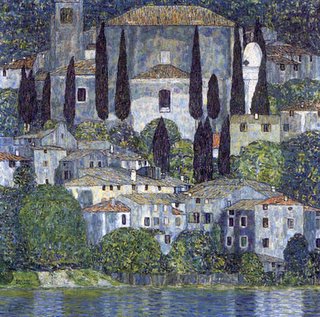Protagonist Action Reflecting Meaning
 How do Lyubov's actions relate to the overall meaning?
How do Lyubov's actions relate to the overall meaning? The cherry orchard on the estate acquires an almost mythical quality, though never seen, and bookends Lyubov's journey. Grisha's death sends her away from her beloved cherry orchard and the dwindling finances compel her to return many years later, the message being that some things exist with such a ferocious tangibility that they cannot be put off forever. Like the land,the cherry orchard itself, Lyubov’s suppressed awareness of her great loss exists whether it is directly under foot or not.
Lyubov is propelled by the lack of money and more significantly by the loss of her child. Although we are able to laugh at her blatant ineptitude where the ruble is concerned, the humor is undercut by a deep vein of sadness surrounding Grisha's drowning and the fact that Lyubov is broken by this event. Chekhov reminds of us of the significance the lost child right away by setting Act 1 in a nursery, a now unnecessary place on the estate. Time and Previous Action also force the action by emphasizing the length of time Lyubov has been at a distance from both the estate and her raw, exposed memories of Grisha's drowning. However, despite her absence of five years we see a still fragile and wounded woman, not benefiting from the time and distance she has kept but hampered by it both financially and emotionally. Due to finances, she now has no choice but live in the presence of her pain, whether she is able to confront it or not.


0 Comments:
Post a Comment
<< Home